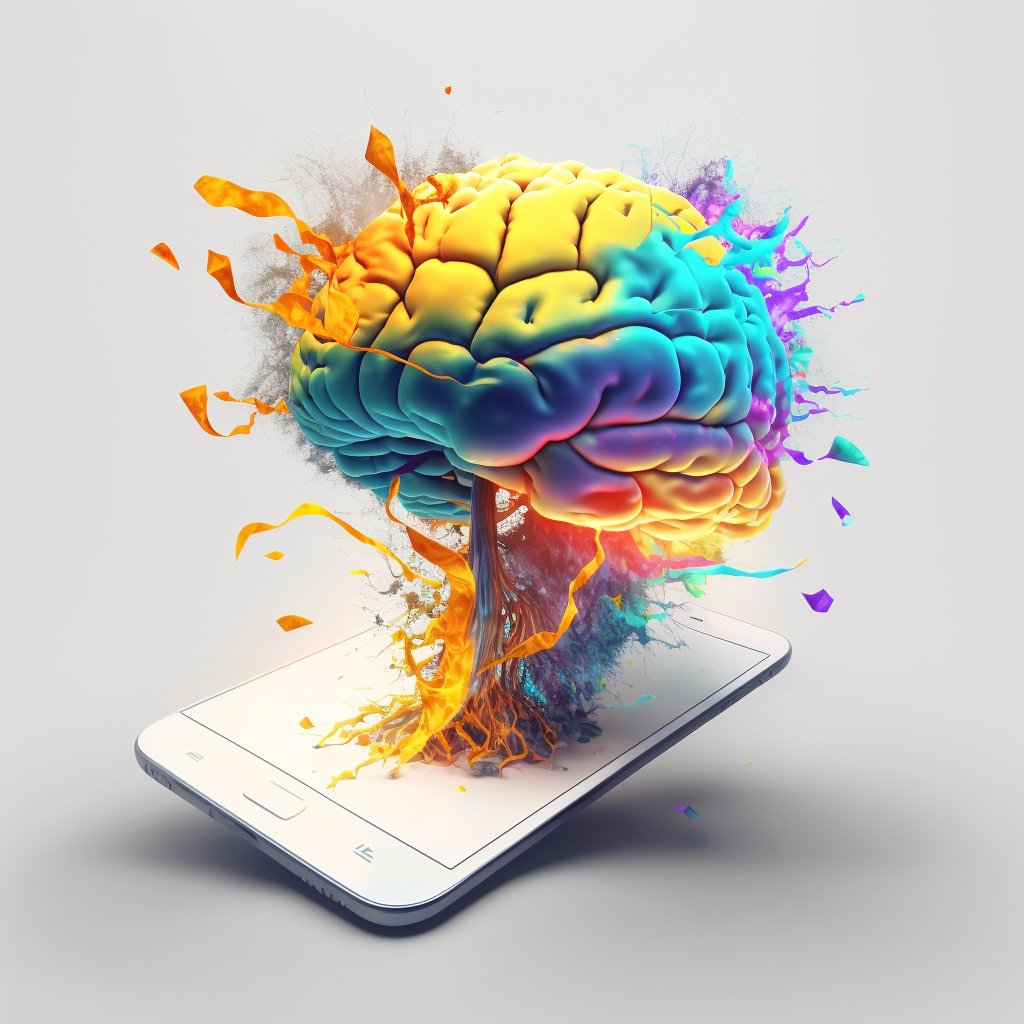Many psychological therapists are now using Artificial Intelligence (AI) to supplement therapy by providing support, structure and guidance between sessions.
AI-powered tools such as chatbots, virtual assistants, smart calendars and wearable devices can monitor behaviour, strengthen routines and offer real-time feedback to help people manage their symptoms more effectively. While AI will never replace human clinical judgement, it can meaningfully enhance treatment outcomes, especially for people with ADHD who struggle with consistency, executive functioning and emotional regulation.
Why AI Matters for ADHD Right Now
Adults and young people with ADHD often face challenges outside the therapy room that get in the way of progress: missed appointments, forgotten routines, difficulty maintaining structure, emotional overwhelm and problems with self-monitoring.
AI bridges the gap between weekly sessions by offering:
- Gentle nudges to follow treatment plans
- Behavioural reminders throughout the day
- Tools for emotional self-regulation
- Adaptive learning and feedback
- Help to reduce the feeling of being “on your own” between sessions
At a time when ADHD assessments in Scotland and across the wider UK often involve long waiting lists, and when many people feel stuck in the system, AI can provide immediate and accessible support while they wait for full assessment and treatment.
How Can AI Help With ADHD?
1) Behavioural Monitoring and Micro-Interventions
Wearable devices and smartphones can detect patterns of activity, restlessness, stress or task disengagement. They can respond in real time by reminding someone to:
- Take short, restorative breaks
- Return to a task they were working on
- Switch to a calming or grounding activity
- Notice and celebrate small wins
- Track successful days to build motivation
This kind of feedback is especially helpful for people who struggle with executive function and benefit from external structure and prompts.
2) Executive Function and Routine Support
Many AI tools are designed to support the parts of life that ADHD makes harder: planning, prioritising and following through. They can help users:
- Break down large tasks into smaller, manageable steps
- Prioritise their day so that important tasks come first
- Create schedules that match their natural energy patterns
- Reduce cognitive overload and decision fatigue
- Develop reliable systems for remembering deadlines and appointments
Instead of relying purely on willpower, people can lean on systems that keep them anchored when their focus shifts.
3) Emotional Regulation Assistance
Some AI systems now analyse data such as:
- Sleep quality and timing
- Heart-rate variability and stress indicators
- Patterns in mood or journal entries
- Voice tone and speech patterns in voice notes
Based on this information, they can suggest interventions such as breathing exercises, grounding techniques, short walks, stretching or guided meditations. For emotional dysregulation, which is common with ADHD, this can feel like having a supportive guide on hand throughout the day.
4) Educational and Learning Support
In schools, colleges and workplaces, AI algorithms can help educators and trainers understand how a learner works best. This can involve:
- Identifying strengths as well as difficulties
- Highlighting subjects or formats where engagement drops
- Recommending personalised learning strategies
- Providing ongoing feedback to support progress
This is particularly valuable for children and adults whose ADHD was missed in traditional settings that were not designed with neurodiversity in mind.
5) Research and New Treatment Insights
AI can process large datasets that would take humans years to analyse. This can reveal:
- Patterns in ADHD symptoms across age groups
- Factors that influence medication response
- Long-term behavioural and emotional trends
- Possible subtypes or variants of ADHD
These insights can help researchers and clinicians refine treatment options and design more effective interventions for the future.
It is important to remember that AI is designed to supplement human expertise, not replace it. Therapists, psychiatrists and other professionals provide context, compassion and clinical judgement that technology cannot replicate.

What AI-Powered Apps Can Help With ADHD?
There are a variety of AI-powered and tech-assisted apps that may be helpful for individuals with ADHD (Attention-Deficit/Hyperactivity Disorder). Below are some widely used examples:
-
Brain Focus Productivity Timer:
This app uses the Pomodoro technique to help users break down tasks into time-limited intervals, which can increase productivity and make it easier to get started and stay focused. -
Forest:
Offers a gamified approach to time management. Users “plant a tree” and earn rewards for staying focused and avoiding distractions on their phone. -
Headspace:
A meditation and mindfulness app that can help manage stress, improve focus and support emotional regulation, all of which can be beneficial for people with ADHD. -
MyNoise:
Provides a variety of customisable background sounds and white noise. This can be helpful for individuals with ADHD who concentrate better with a controlled level of ambient sound. -
Trello:
A visual project management tool that can help individuals with ADHD organise tasks, plan routines and track progress in an intuitive, drag-and-drop format.
These apps can support day-to-day functioning, but they are not a substitute for professional assessment, therapy or medication where needed. If you or someone you know is struggling with ADHD, it is essential to consult a qualified healthcare provider.
Emerging AI Tools for ADHD in the Near Future
Looking ahead, several new AI directions are particularly promising for ADHD support.
Voice-Based Coaching
AI companions and mental health chatbots can offer:
- Encouragement when motivation drops
- Quick check-ins during stressful moments
- Prompts to return to goals and routines
- Space to talk through worries between therapy sessions
Although these tools are not therapists, they can reduce loneliness and help people feel more supported in their everyday lives.
AI-Generated Daily Plans
Some emerging tools create adaptive daily schedules that respond to mood, sleep, stress levels, screen time and personal habits. For people with ADHD, this flexibility can be far more helpful than rigid routines that are hard to maintain.
Smart Homes and ADHD Support
As home automation develops, it is likely that more features will be designed with neurodiversity in mind. For example:
- Lights that dim and routines that trigger at bedtime
- Reminders linked to specific rooms or times of day
- Background sound or music that starts automatically during work periods
In this way, the environment itself can become more supportive for an ADHD brain.
Digital ADHD Journals and Pattern Detection
AI-assisted journals and mood trackers can identify:
- Times of day when focus is strongest
- Recurring triggers for emotional overwhelm
- Patterns linking sleep, stress and concentration
These insights are especially helpful when shared with a therapist or doctor, as they provide a clearer picture of what is happening between appointments.
When AI Works Best in ADHD Treatment
AI tools tend to be most helpful when they are:
- Used alongside therapy, not instead of it
- Integrated into existing routines in realistic ways
- Personalised to the person’s goals and preferences
- Framed as support rather than pressure or judgement
People usually see the biggest benefits when AI becomes a gentle structure that supports their brain, rather than another standard they feel they have to live up to.
Limitations and Ethical Considerations of AI for ADHD
Although AI offers many advantages, it also has important limits. For example:
- AI can misinterpret data without understanding context
- Privacy and data security vary between different apps and devices
- Not all tools are clinically validated or regulated
- AI cannot replace empathy, human connection and clinical judgement
- AI cannot diagnose ADHD or decide on medication
This is why human professionals remain central. Therapists help interpret what AI cannot see: upbringing, trauma, masking, relationships and the personal meaning behind each person’s experience.

Could AI Help With ADHD Waiting Times in the UK?
Many people in the UK face long waiting times for an ADHD assessment, both for children and adults. AI-based tools may help by:
- Supporting initial symptom screening
- Helping services prioritise more urgent cases
- Providing guided self-help while people wait
- Reducing administrative pressure on teams
AI will not replace a full assessment, but it may help people feel less stuck and more supported while they move through the system.
Do you think you may need help with an ADHD assessment? We would love to hear from you.